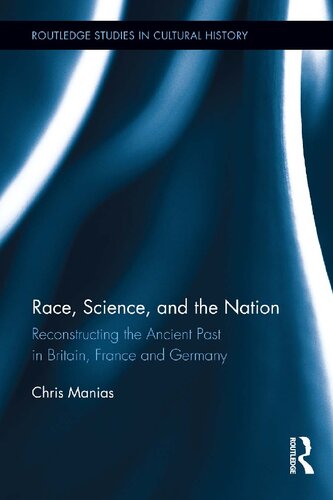

Most ebook files are in PDF format, so you can easily read them using various software such as Foxit Reader or directly on the Google Chrome browser.
Some ebook files are released by publishers in other formats such as .awz, .mobi, .epub, .fb2, etc. You may need to install specific software to read these formats on mobile/PC, such as Calibre.
Please read the tutorial at this link: https://ebookbell.com/faq
We offer FREE conversion to the popular formats you request; however, this may take some time. Therefore, right after payment, please email us, and we will try to provide the service as quickly as possible.
For some exceptional file formats or broken links (if any), please refrain from opening any disputes. Instead, email us first, and we will try to assist within a maximum of 6 hours.
EbookBell Team

4.3
38 reviewsAcross the nineteenth century, scholars in Britain, France and the German lands sought to understand their earliest ancestors: the Germanic and Celtic tribes known from classical antiquity, and the newly discovered peoples of prehistory. New fields – philology, archeology and anthropology – interacted, breaking down languages, unearthing artifacts, measuring skulls and recording the customs of "savage" analogues. This was a decidedly national process: disciplines institutionalized on national levels, and their findings seen to have deep implications for the origins of the nation and its "racial composition." However, this operated within broader currents. The wide spread of material and novelty of the methods meant that these approaches formed connections across Europe and beyond, even while national rivalries threatened to tear these networks apart.
Race, Science and the Nation follows this tension, offering a simultaneously comparative, cross-national and multi-disciplinary history of the scholarly reconstruction of European prehistory. As well as showing how interaction between disciplines was key to their formation, it makes arguments of keen relevance to studies of racial thought and nationalism. It shows these researches often worked against attempts to present the chaotic multi-layered ancient eras as times of mythic origin. Instead, they argued that the modern nations of Europe were not only diverse, but were products of long processes of social development and "racial" fusion. This book therefore brings to light a formerly unstudied motif of nineteenth-century national consciousness, showing how intellectuals in the era of nation-building themselves drove an idea of their nations being "constructed" from a useable past.